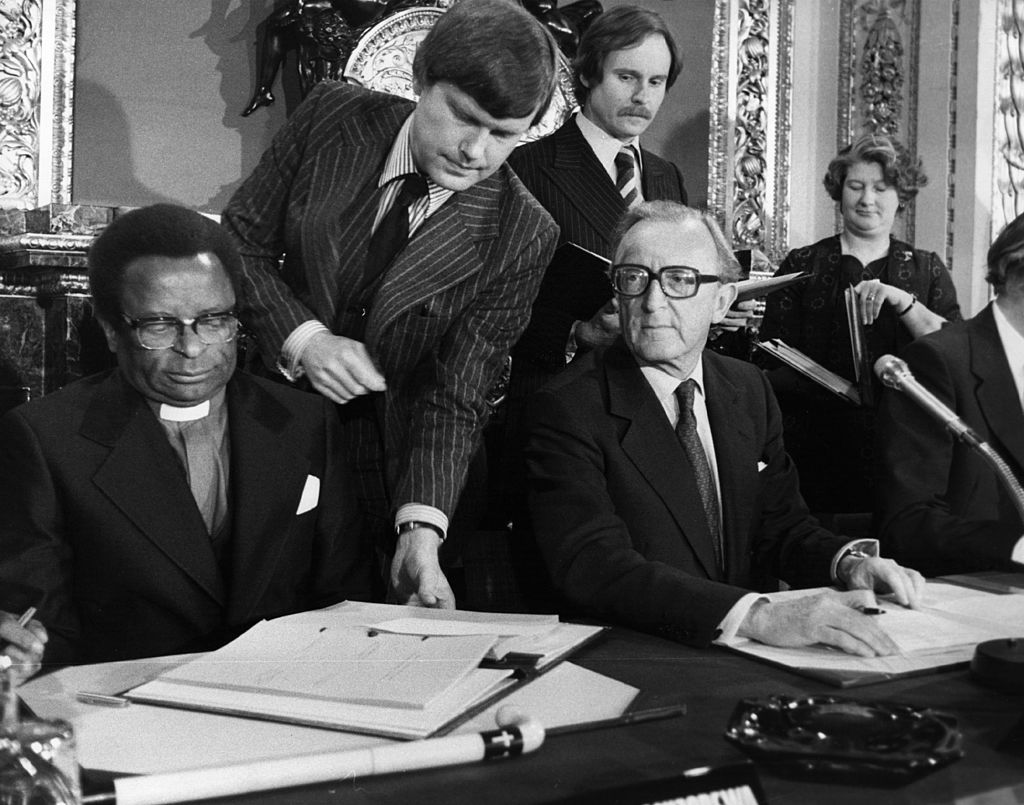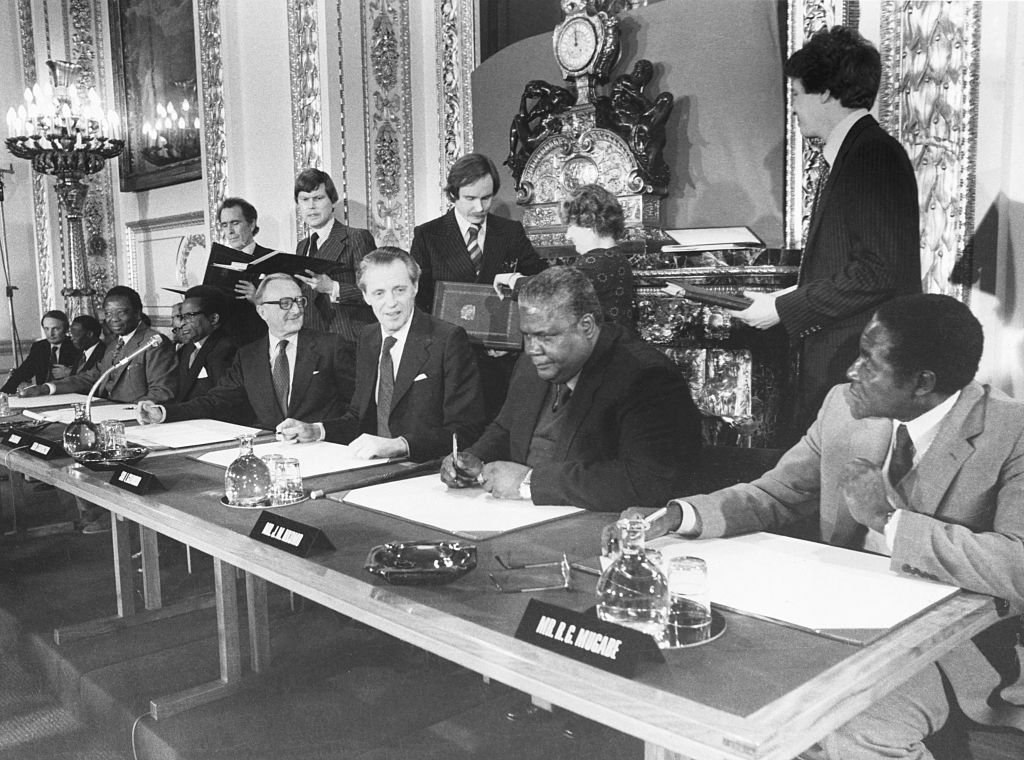Forty years ago, on 21 December 1979, an agreement was signed at Lancaster House. It brought an end to the illegal white-dominated regime that had ruled Rhodesia since the Unilateral Declaration of Independence (UDI) in 1965, and ushered in the newly independent state of Zimbabwe. The Lancaster House Agreement represented an early diplomatic success for the new Conservative government of Margaret Thatcher and remains one of the most notable achievements of British diplomacy since the Second World War.

FCO Historians are marking the 40th anniversary by publishing 2 eyewitness accounts of the Lancaster House conference.
The first is a republication of a witness seminar held in 2005 which brought together many of the leading participants at Lancaster House, including former Foreign Secretary Lord Carrington.
The second publishes for the first time transcripts of interviews with participants who were unable to attend the witness seminar, including two key FCO diplomats:
- Robin Renwick (later Ambassador to South Africa at the time of Nelson Mandela’s release from prison)
- Charles Powell (later an influential foreign policy adviser to Margaret Thatcher)
It also includes a transcript from former Commonwealth Secretary Sir Sonny Ramphal.
Read these 2 important accounts: https://issuu.com/fcohistorians.
Lancaster House was a high-risk strategy. It involved abandoning previous efforts to forge a settlement in co-operation with the USA, the policy pursued by David Owen (one of the interviewees) as Foreign Secretary 1977 to 1979. It also meant resuming the UK’s sole responsibility as a colonial power. Margaret Thatcher, who initially favoured a deal with rebel premier Ian Smith and his associate Bishop Abel Muzorewa, was won over to the plan by its boldness.
Britain would bring Smith and Muzorewa into direct negotiations with the Patriotic Front, headed by rival leaders Joshua Nkomo and Robert Mugabe – and keep them engaged until a settlement was reached. If anyone threatened to leave, the negotiations would simply proceed without them.

The strategy proved successful, but another problem still had to be resolved: how to bring a brutal civil war to an end without bloodshed. At a time of extreme tension, the newly appointed governor-general Christopher Soames, supported by a small detachment of British troops, achieved the disarmament of the rival armies and supervised the first free elections in February 1980. Few at the time anticipated the sweeping nature of Mugabe’s election victory or the ruthlessness with which he would exercise his power over Zimbabwe in the ensuing decades.
Keep tabs on the past: sign up for our email alerts
Follow our Foreign & Commonwealth Historians on Twitter @FCOHistorians